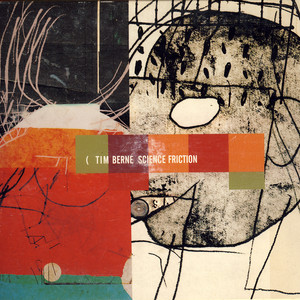
Science Friction
- 流派:Jazz 爵士
- 语种:英语
- 发行时间:2008-02-14
- 类型:录音室专辑
- 歌曲
- 时长
-
Disc 1
-
701:04
简介
by Dave LynchTim Berne has definitely been feeling that "composing jones." He's had it before, of course, certainly in the mid-'90s when he was penning lengthy opuses for his Bloodcount quartet. Around the same time, his Paraphrase band began focusing exclusively on three-way improvisational dialogues involving Berne, drummer Tom Rainey, and bassist Drew Gress. Soon the Paraphrase improvisational approach seemed to be capturing more of the reedman's attention than the scored/improvised mix of Bloodcount, but his composing side must have started to get the better of him, because as the '90s gave way to the '00s he was writing and recording a slew of new compositions with various different groupings, including the Copenhagen Art Ensemble (Open, Coma); the Hard Cell trio featuring Rainey and keyboardist Craig Taborn (The Shell Game); and the Science Friction quartet with guitarist Marc Ducret in addition to Berne, Rainey, and Taborn. The latter band can be heard on 2002's Science Friction, performing music that is among the most densely composed and constructed of Berne's entire career, with pieces ranging from the expected length of "Manatee Woman"'s 12 minutes and 20 seconds down to the single minute of "The Mallomar Maneuvre," which just might be the shortest thing ever heard on a Berne disc. All the expected elements of the saxman's music are present on Science Friction's eight tracks: the spiky melodies in unison and counterpoint, the rhythms that maintain forward momentum despite their twisted meters, the abrupt transitions as well as the seamless blending of composition and improvisation. Yet in addition to the density, compositional focus, and comparative brevity of many of these pieces, Science Friction also signals a new, electrifying -- and electrified -- direction in Berne's career. He had incorporated electric instruments in his music before, including Taborn's electric keyboards on The Shell Game and Ducret's electric guitar on scattered releases up to and including Open, Coma. But here Berne even lets the producer sonically mess around with his alto sax (he plays no baritone here), distorting and manipulating his sound and, in the case of "Mallomar," bending and folding it into entirely new shapes. The producer in question is David Torn, who had previously worked with Berne but on Science Friction is given the widest latitude yet in employing his distinctive skills (Torn's mixology would be displayed even more prominently on The Sevens, Berne's New World CD released several months after Science Friction). The production is impressive, highlighting inspired performances from all four bandmembers. The rollicking opener, "Huevos," begins with a percolating fusion vibe and, without stretching compositional credulity, concludes with a nearly Baroque guitar passage from Ducret; "Sigh Fry" is uncharacteristically spacy and ethereal, while "Manatee Woman" marries free funk with what sounds like mutant heavy metal. In fact, it's difficult to single out tracks for special mention -- everything is riveting in its own way and these musicians once again prove themselves to be among the best in all of cutting-edge jazz. Perhaps most striking, though, is how Berne maintains his singular musical personality and style in these new environs. He takes what he wants from changing technologies and trends, seasoning his music but always retaining its unmistakable essence. And in the case of Science Friction, the result is yet another peak in his recording career -- although when one considers Berne's other releases of the early '00s, the peak looks more like a plateau. The newly colorful Screwgun sleeves are cool, too.

